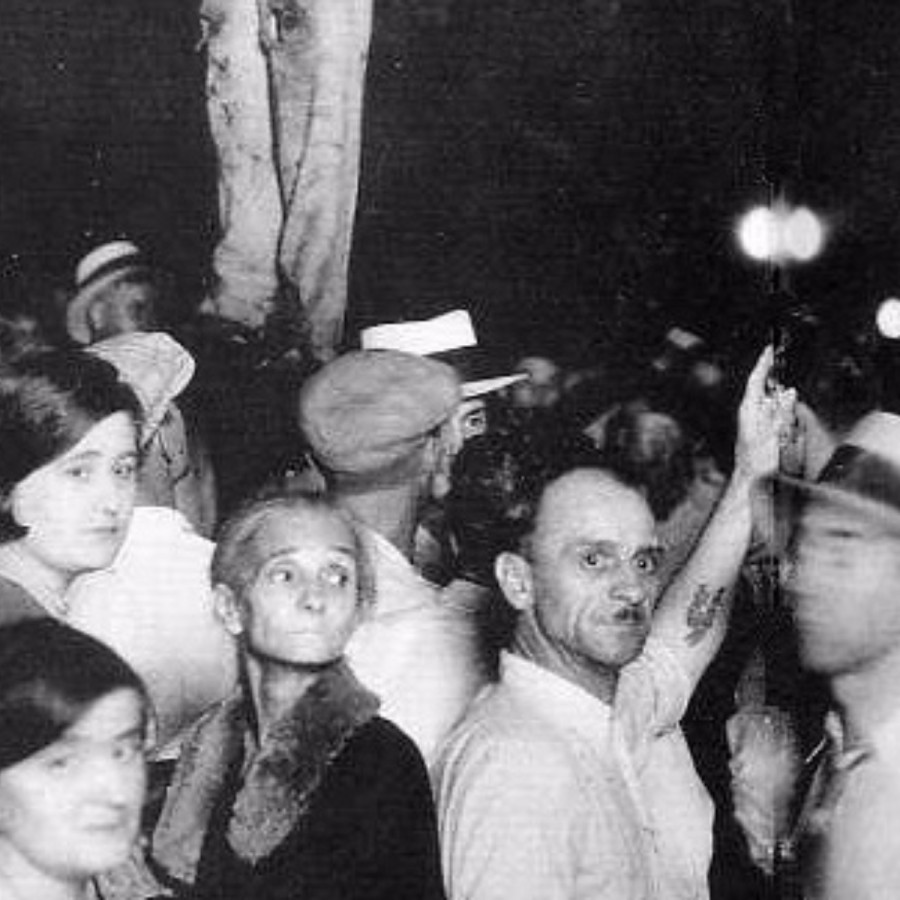Elgin Navigates Difficult Conversation Over Mural Depicting Lynching Crowd
By Max Green

Elgin Navigates Difficult Conversation Over Mural Depicting Lynching Crowd
By Max GreenThe city government of Elgin, Illinois is trying to foster a calm and thoughtful response to the hubbub that erupted this week over a decade-old mural that depicts a 1930 photograph of a lynching.
Although it was painted years ago by Elgin artist David Powers as part of a city-funded commission, word of the mural spread through the area this week when side-by-side comparison with the 86-year-old photograph were posted on social media. The mural depicts a crowd of onlookers — the lower portion of the photograph — rather than the two lynchings captured in the top half of the famous 1930 photo of an Indiana lynching.
No one realized what the mural depicted at the time it was painted, said Elgin Communications Director Kristine Rogowski. But she said the city doesn’t plan to shy away from having a forthright conversation about it.
“We’re getting all types of feedback from the city, from people who want it taken down immediately to people who call that art censorship, to people who feel it’s fine but the context isn’t provided and is necessary,” Rogowski said. “The issue for the city is without that context, the picture means different things to different people, as art is typically interpreted in different ways.”
When the city learned what the mural depicted, it’s first move was to get in touch with Powers, Rogowski said. Powers told the city that he hoped the mural would foster a conversation about racism and how cultural differences that go unchecked can result in horrific events becoming commonplace.
Elgin has cleared the agenda for its next Human Relations Commission meeting on June 7, opting instead to host an open forum where city residents are invited to discuss their feelings about the mural and suggest possible fixes. Rogowski said even in the few days since the conversation over the mural began, the city has started to entertain important questions about art, including whether all public works should have plaques or signage installed along with them, and whether the city should begin funding public artwork again, which it hasn’t in years.
“If people have an opinion on this, we are open and willing to sit down and discuss it,” Rogowski said. “No rash decisions can be made either way, this is a process that we can grow from so we really encourage people to attend our community conversation and become a part of the solution.”
Max Green reports for the WBEZ news desk. Follow him @maxraphaelgreen
